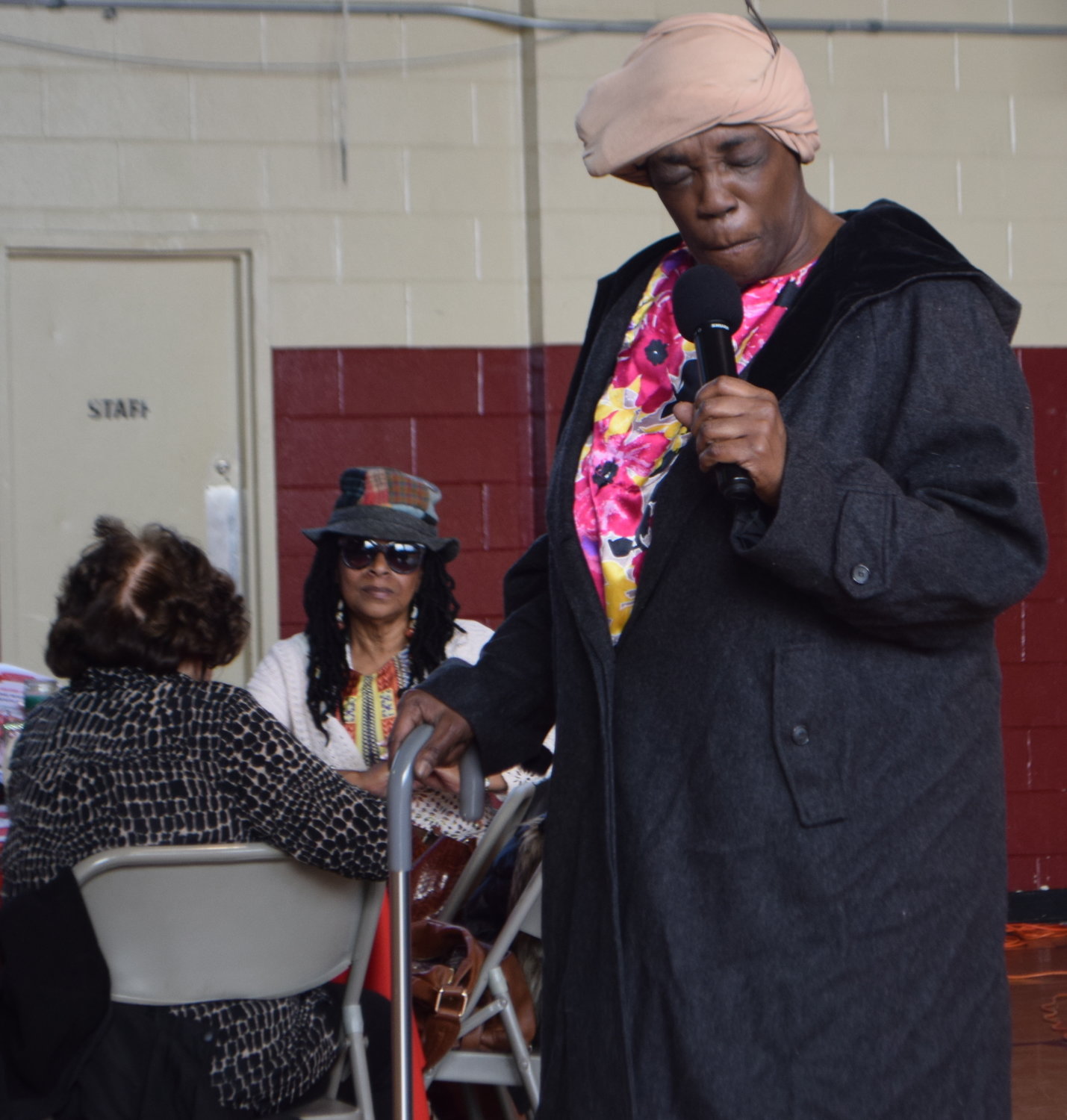Blending Black History Month with health care
Raising awareness of the past and HIV/AIDS at the Five Towns Community Center
At an event on Feb. 21, the Five Towns Community Center, in Lawrence, celebrated both National Black HIV/AIDS Awareness Day, marked two weeks earlier, and Black History Month, interspersing personal stories, health information and local history with the words of the Rev. Dr. Martin Luther King Jr. on civil rights and equality.
Hosted by Health & Prevention Services of Hempstead/Lawrence, the three-hour program kicked off with the playing of King’s iconic “I Have a Dream” speech at the March on Washington for Jobs and Freedom in 1963, in which he called for civil and economic rights and an end to racism in the United States.
HPS Program Director N. Rick-Anthony Richards Jr., who served as the emcee, said that the purpose of the event was to “reminisce and reflect on where we are today” compared with the past. “I remember being a kid, and asking why the white people got to enter through the front door at the doctor’s office and we had to go through the back door,” Richards said. “From that moment on, at a young age, I made a vow to change things.”
He noted that the human immunodeficiency virus, HIV, is more prevalent in communities of color. According to the Foundation for AIDS Research, known as amfAR, black Americans account for nearly half of all new HIV infections each year, despite comprising only 13 percent of the nation’s population. HIV weakens the immune system by destroying critical cells that fight disease and infection. There is no cure, but with proper care, HIV can be controlled, according to the Centers for Disease Control and Prevention.
Guest speaker Niko Flowers, an HIV survivor, recounted being a 19-year-old college student in 1990. She had sex for the first time — unprotected — with a young man she was dating. Unbeknown to her, he had contracted HIV, and as a result, she, too, was diagnosed with it.
Flowers emphasized the need for African-Americans to teach one another about HIV/AIDS as a way to help prevent it from spreading. “Educate your children on this instead of letting the streets educate them,” she said. “You need to keep in mind that when you sleep with somebody, you’re also sleeping with all the people they’ve slept with in the past.”
Karen Haslam, program coordinator for the Long Island Federally Qualified Health Center’s Hempstead-based PEOPLE Project, also spoke. The project — which stands for Pre-Exposure Outreach Prevention Lifestyle Education — was founded in 2014 to help combat HIV/AIDS by providing free testing and medication for patients who can’t afford it. Haslam detailed the history of the disorder and the work her organization does to combat it.
Afterward, she stressed the importance of spreading the project’s message. “Today’s event is a great way to give people awareness of what they can do to combat the infection and break the stigmas associated with it,” she said. “Having awareness on something like HIV/AIDS is a great way to bring the black community — that is, unfortunately, divided at times — together.”
Stacey S. Latimer, an auxiliary bishop of the Church of the Everlasting Kingdom and founder and leader of the Love Alive International Sanctuary of Praise-Worship Center in Manhattan, said that HIV/AIDS patients must still “love” themselves despite their tough situation. “Love is the only thing that is going to help us, not just with HIV/AIDS, but also with life in general,” Latimer said.
In the program’s final nod to the history of African-Americans in the U.S., Flowers recreated the persona of Harriet Tubman, the former slave who was known as the “president” of the Underground Railroad, the system used to smuggle escaped slaves north before the Civil War. Wearing a head scarf and walking with a cane, Flowers offered some historical insight into one of the most famous black Americans.
Richards also highlighted local history, noting the Five Towns Community Center’s past as a trade union school that taught people, especially African-Americans, work skills and recalling the stadium in Cedarhurst where teams including the New York Black Yankees played baseball.
Longtime Inwood resident and community center board member Pete Sobol, who is currently the interim chief executive officer said, “Growing up in a predominantly African-American neighborhood in Roosevelt, I grew a deep appreciation for all of God’s children. A lesson to be learned from here today,” added Sobol, who is white, “is to always be proud of who we are.”

 47.0°,
Mostly Cloudy
47.0°,
Mostly Cloudy 




